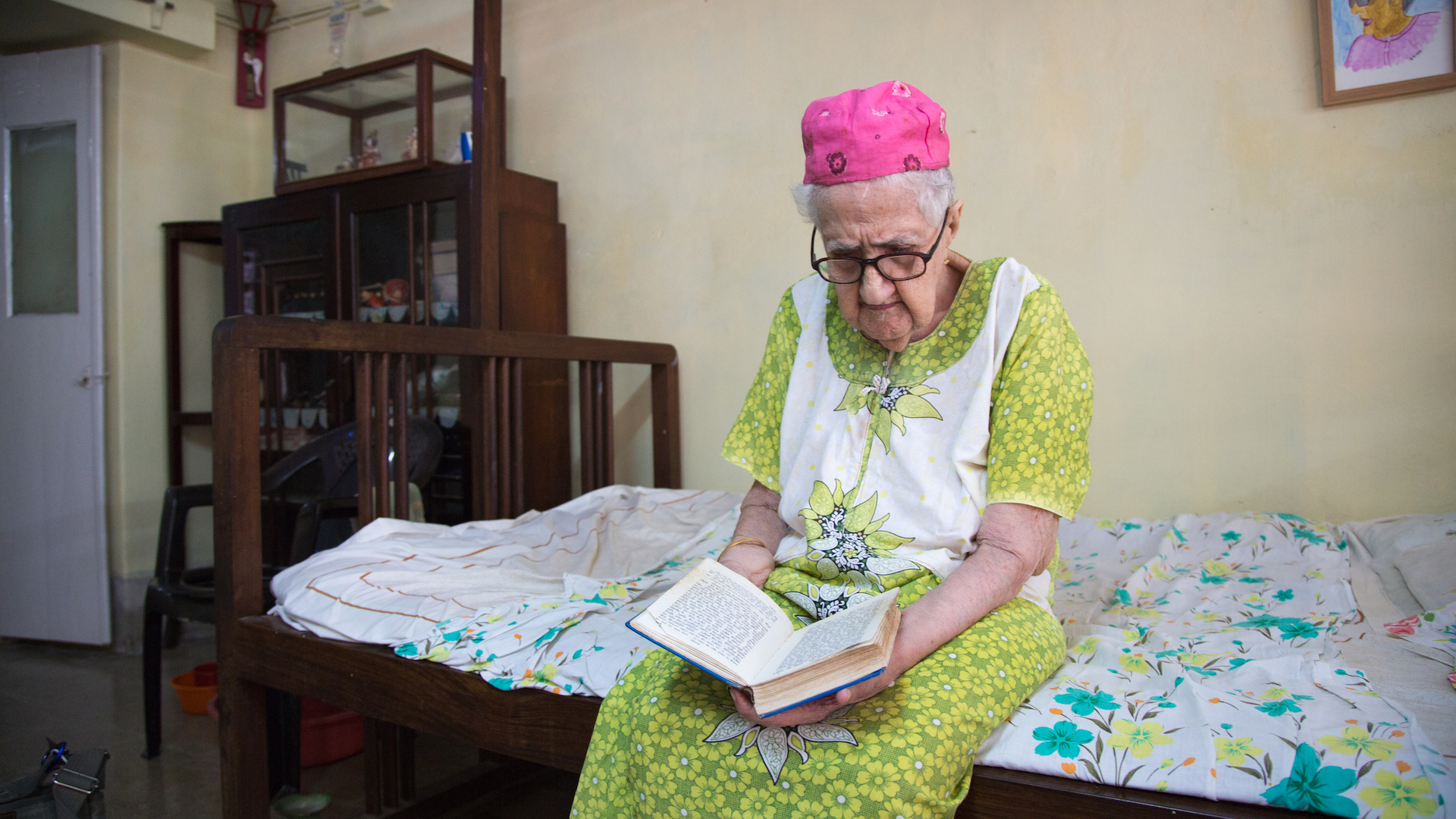
I met Sarah Cohen as she sat on her four-poster bed. On her right was a menorah and wall of pictures—including one of her with Prince Charles and Duchess Camilla. On her left were the room’s windows with protective bars in the shape of the Star of David.
Ninety-six-year-old Cohen has made international headlines for her age and another interesting reason—she represents a dwindling population of Jews in a nation known for being mostly Hindu. She’s one of the last living links to a lesser-known history of Judaism in the subcontinent.
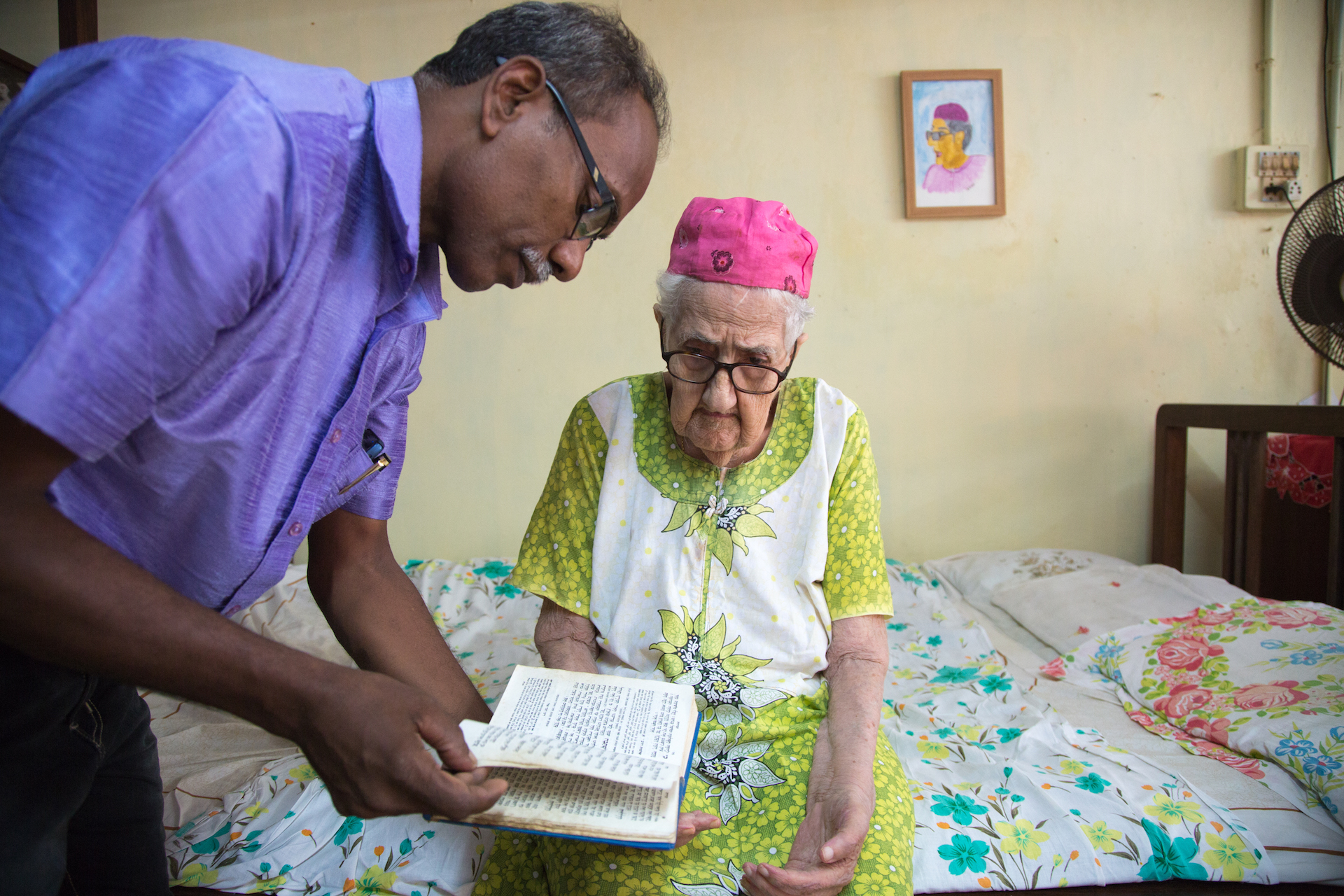
Thaha Ibrahim, Sarah Cohen’s Muslim caretaker, opens Cohen’s songbook in preparation for her to sing songs in Hebrew. Ibrahim has been caring for Cohen for years. He knew of Cohen since he was a boy, selling items on the street. He says she treats him like a son. Photo by Caroline Anderson.
Men, women, and children of myriad nationalities and faiths wander in and out of Cohen’s home—which doubles as her embroidery shop—on their way to or from her town’s historic synagogue. They pose for selfies with her and marvel at the enigma of an ethnically European Jewish woman who is an Indian citizen.
Cohen lives in what’s locally called “Jew Town” in the city of Kochi. The story of how Cohen’s community came to be in India started with the persecution of Jews in Portugal and Spain.
The Journey of Jews to India
Cohen’s ancestors were Sephardic Jews, originally from Sepharad, which is a biblical location (Obadiah 1:20) and thought to be in or include Spain and Portugal. In the fifteenth and sixteenth centuries, a group of Sephardic Jews left the Iberian Peninsula after the Alhambra Decree declared the Jews of Spain and Portugal must convert to Christianity or leave.
Those who chose to flee scattered and settled in a number of countries throughout the world. Some settled in the harbor and port city of Kochi, which was then known as Cochin, in the Indian state of Kerala. Others likely journeyed through Aleppo, Constantinople, and Israel before making their way to India. They were granted sanctuary by the local Hindu ruler and came to be known as Paradesi Jews, or “foreign Jews.” At the time, Kerala was home to another Jewish community, the Malabar Jews, who settled in India during the era of King Solomon.
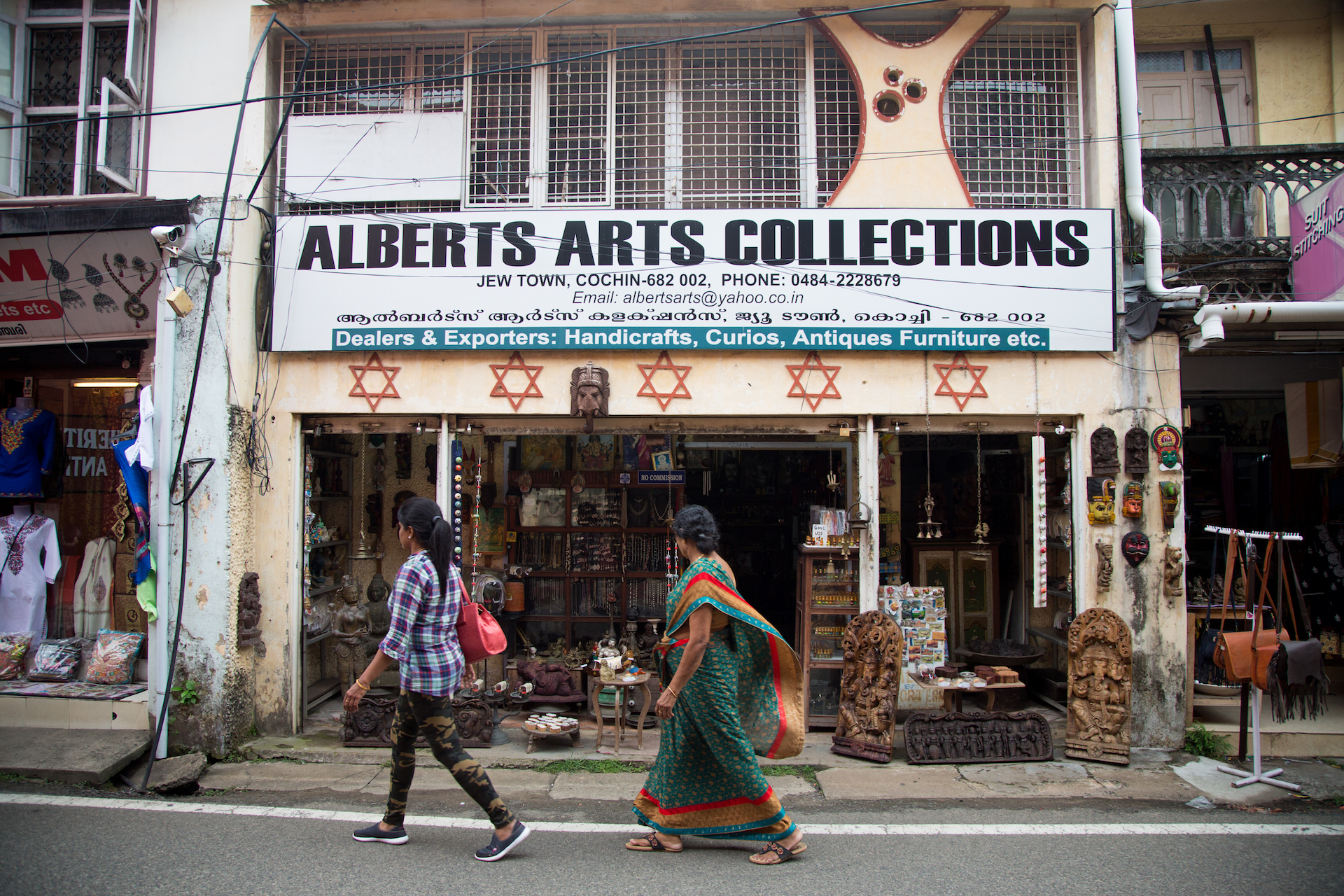
Cohen’s ancestors came to South India and have lived in peace among Hindus and Muslims for centuries. Cohen’s Jewish community, however, is small and creates a unique presence in Kochi, India. Photo by Caroline Anderson.
Most of Kerala’s Jewish population moved to Israel after the Israeli Nationality Law of 1952, which was adopted four years after Israel gained statehood. The law detailed the right of return for the Jewish diaspora and granted citizenship upon arrival for those who met the criteria.
Yet some stayed because they couldn’t bear to uproot what cost their ancestors so much to plant. Cohen, her now late husband, and several other families remained. The BBC reported in 2015 there were six Paradesi Jews remaining in Kochi. Cohen is one of the remaining six, and on a recent trip to India, I walked into her home, hoping to meet the local legend. I learned three lessons sitting next to Cohen on her four-poster bed.
I Have to Know More about My Neighbor
During my visit with Cohen, she placed a pink kippah over her curly white hair in preparation to sing devotional songs taken from the Torah. Over the years she has invited many people, Jews and non-Jews, into her home to sing along or listen to prayers.
I listened to her sing as her veined hand traced the Hebrew words in her songbook. After Cohen finished singing, my traveling companion leaned toward Cohen and recited from memory Deuteronomy 6:4: “Hear, O Israel: the Lord our God, the Lord is one.”
Cohen’s eyebrow shot up over the rim of her glasses in surprise and recognition of the Shema Yisrael, considered the most important prayer a Jew can utter. The statement captures the essence of the monotheism of Judaism. It’s part of the mitzvah—Jewish religious commandments—and is recited twice a day in morning and evening services. Parents often teach their children to say the Shema Israel before bed, and many Jews endeavor to make these their last words before death.
“Knowledge is power, but I’d add that knowledge of a person’s belief system is the power to reach them with the gospel in a way that resonates.”
As is commonly quipped, knowledge is power, but I’d add that knowledge of a person’s belief system is the power to reach them with the gospel in a way that resonates. The understanding of the Shema Yisrael led to an in-road to talking about Jesus with a woman who’s lived nearly a century waiting for the Messiah to come. My friend told her the Messiah had indeed come, he is waiting for her to know him, and he loves her.
“Hiding God’s Word in Your Heart” Shouldn’t Be a Cliché
Cohen’s memory seemed to be fading. Her caretaker told me it may be Alzheimer’s or dementia. However, in my conversation with Cohen, while she struggled to remember day-to-day details, she did not forget the devotional songs or the Shema Yisrael.
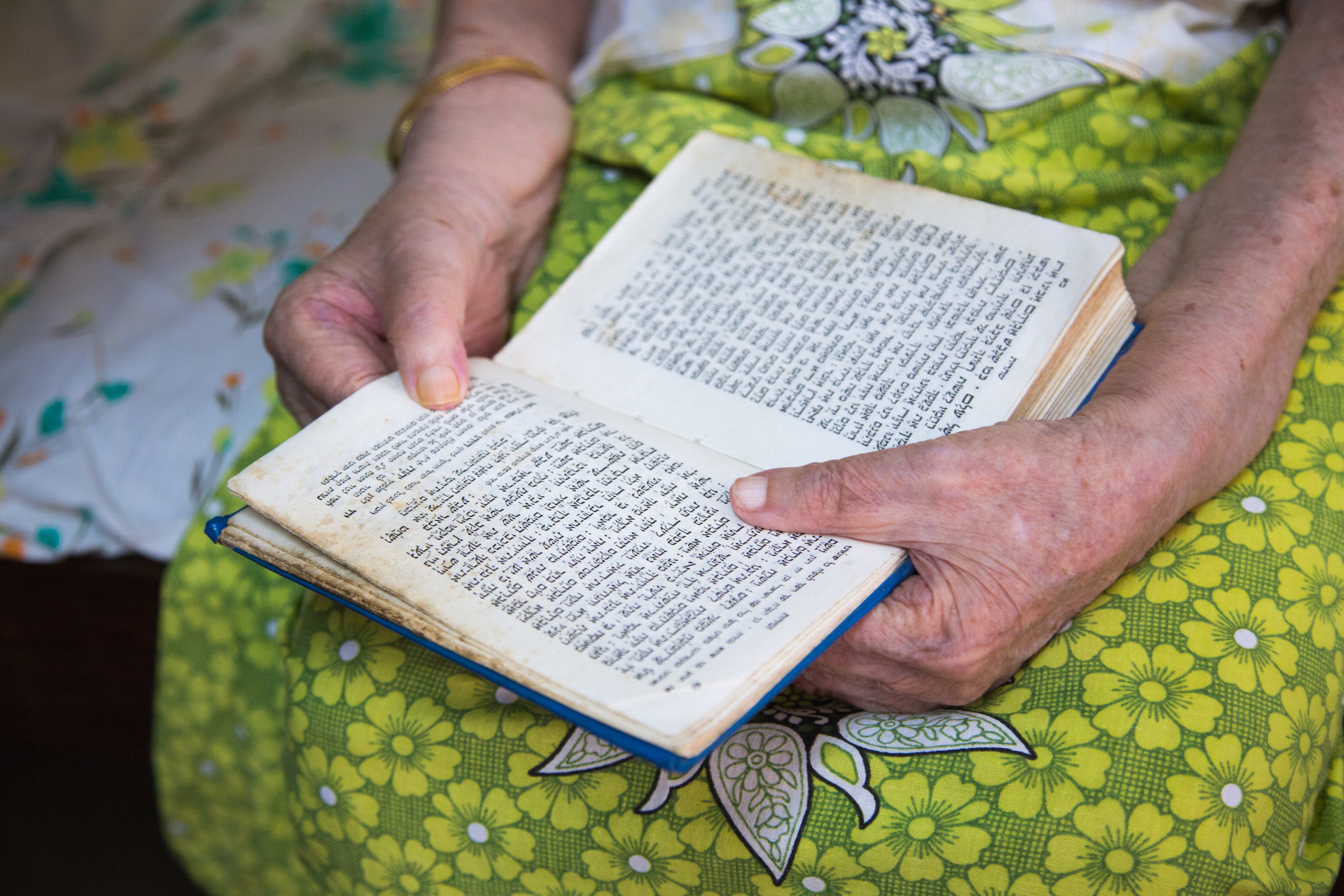
Sarah Cohen recites passages every day from her well-worn Torah. Photo by Caroline Anderson.
What I discovered from both of my grandmothers who had dementia, was that they remembered Bible verses and hymns with startling clarity, even when they forgot family members’ names and struggled to form complete sentences. Their minds were sharp when it came to God’s Word. This was a testament to the permanence and preeminence of Scripture and their decades of walking with the Lord.
Spending time with Cohen reminded me of the importance of storing God’s Word in my heart, as Psalm 119:11 encourages. Cohen spends dedicated time each day to singing and reciting Scripture. In Joshua 1:8 and Psalm 1, we are told to meditate on his Word day and night.
We are charged to bind his word to our hearts (Prov. 6:21–22) and we’re given physical imagery to remind us of the importance of God’s commands—binding them as a sign on our hands and as frontlets in between our eyes.
If age and illness are to claim my memories, I hope and pray that like Cohen and my grandmothers, I will be able to recall and cling to Scripture and worship songs. I want to let the love of God and his Word direct my paths and be written forever on my heart.
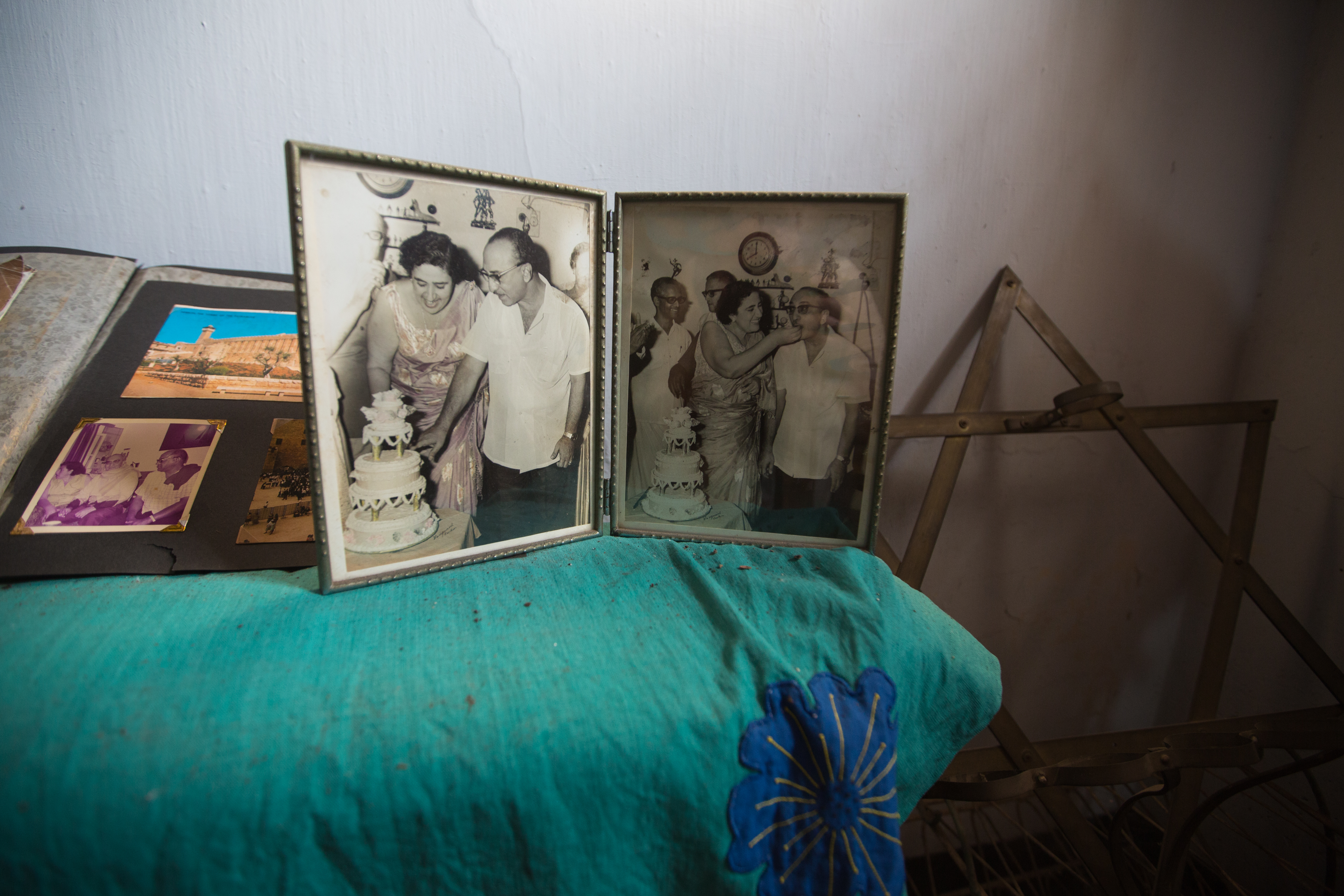
Cohen and her late husband celebrate their wedding anniversary with the local community in Kochi. The photo album to the left stores memories from their trips to Israel. Photo by Caroline Anderson.
I Should Not Shy Away from Other Faith Communities
Jew Town is now home to more of a Muslim population than a Jewish population. A Muslim shopkeeper explained this region is known for religious communities living together peaceably. Four major world religions—Christianity, Islam, Judaism, and Hinduism—have long, overlapping roots in the Indian state of Kerala. As the shopkeeper served me tea, he said these faith communities live, work, and worship in close proximity.
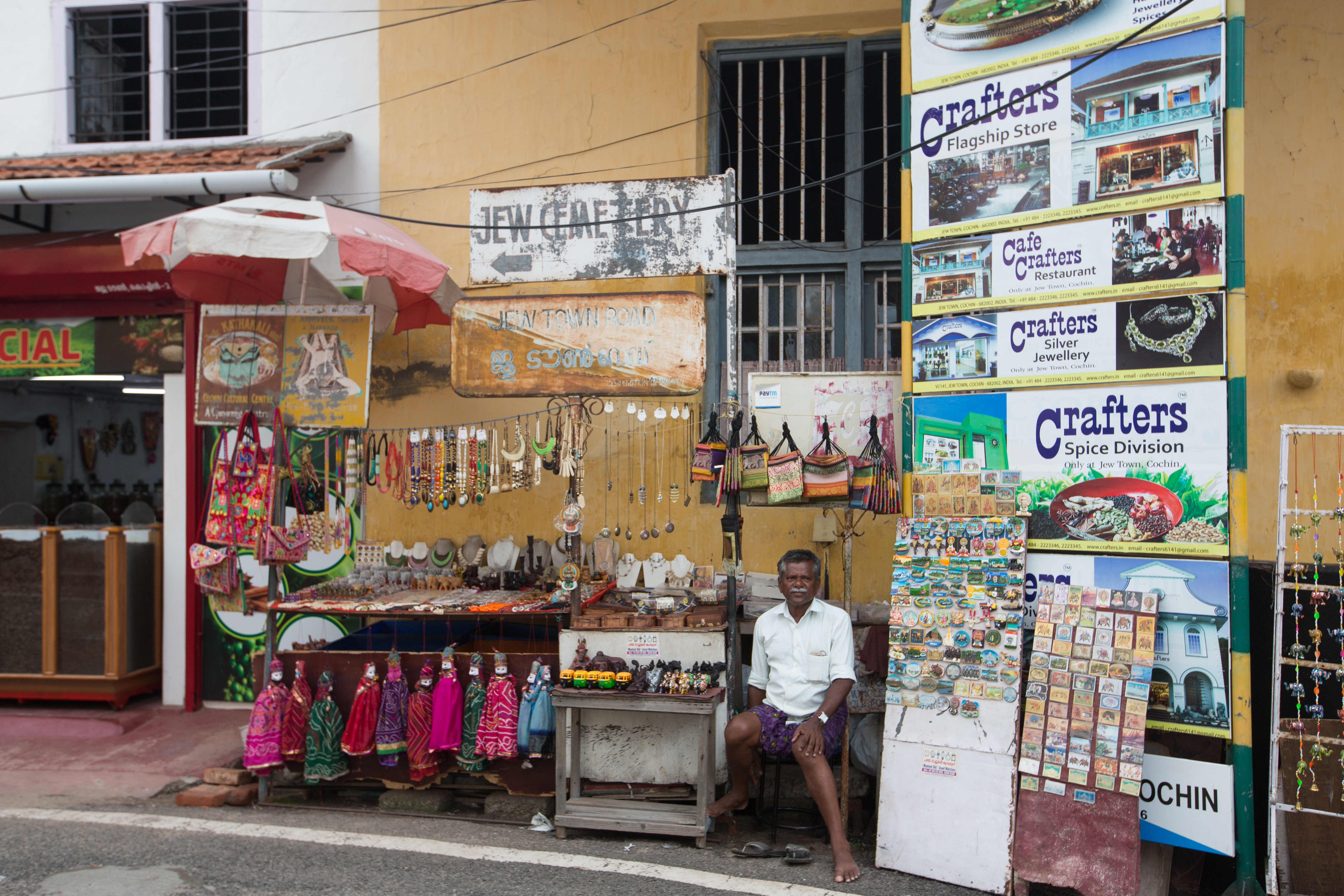
A man sells souvenirs, idols, and information in the heart of Kochi, India. His shop is situated in what locals call “Jew Town.” Photo by Caroline Anderson.
Looking out into our US communities, do they look like Cohen’s neighborhood? Or are they more religiously or racially segregated? Instead of moving out of urban areas into neighborhoods where people look and think as we do, what if we chose to stay? Our lives are a testament to the gospel, and people can see how we carry ourselves in the day-to-day minutia. That’s not possible when we do fly-by mission endeavors among different peoples.
Staying among diverse peoples also helps us truly love them with the depth Christ asks of us in Mark 12:31. It’s easier to fear or be uncomfortable with someone you can’t see—that’s why social media’s crowd mentality, especially in the comment section of news articles, can be so dangerous.
Greet, Pray, Love
With every day that passes for Sarah Cohen, I pray she’ll believe and accept that her Messiah has come. Join me in praying for her and for the Paradesi Jews, both in India and Israel. Pray they’ll have more opportunities to hear their beloved Messiah has come.
And as we do, let’s plant ourselves boldly and lovingly into other faith communities for the sake of the gospel. Let’s be equipped with memorized truths from Scripture and with the knowledge of worldviews held by people whom God has placed in front of us.
See more of Caroline’s photos from her time with Sarah Cohen in Kochi, India.
Caroline Anderson is a writer and photographer with the IMB. She currently lives in Southeast Asia. Her childhood in Asia consisted of two important ingredients: braving hot chili peppers and telling people about Jesus.

